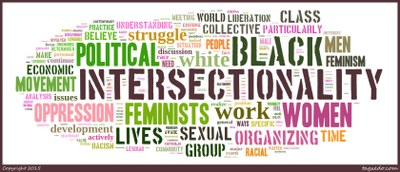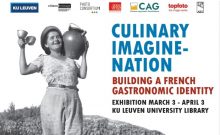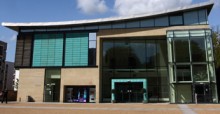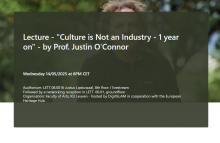The last few years have witnessed a movement towards a more open and inclusive Digital Humanities field. The Alliance for Digital Humanities Organizations has appointed a Multilingualism/Multiculturalism committee to address these issues and accepted a special interest group, Global Outlook :: Digital Humanities, to try to break down barriers between countries in the Global North and the Global South. Intersectional studies are also developing within DH to try to bring a plurality of voices into the conversation.
KU Leuven’s Digital Humanities Task Force invites individual paper proposals, panel sessions, poster sessions, and tool demonstrations related to intersectionality in Digital Humanities.
Meeting venue: KU Leuven
Dates: September 15th to 17th (immediately after the Digital Humanities Summer School, September 12th to 14th).
Confirmed plennary speakers include:
- Deb Verhoeven (Deakin University)
- Roopika Risam (Salem State University)
- Daniel O’Donnell (University of Lethbridge)
- Alex Gil (Columbia University)
- Padmini Ray Murray (Srishti School of Art, Design and Technology)
- Melissa Terras (University College London)

Topics might include but are not restricted to:
- Development and evaluation of feminist, gender, queer, and disability studies in Digital Humanities
- Digital manifestations of critical race studies
- Digital Humanities and activism
- Collaborations between digital humanities specialists and scholars in other fields
- Born-digital critical and creative initiatives in cultural history
- Histories and futures of the digital
- Editorial initiatives, digitization and curation of primary texts, representation of manuscripts and the writing process
- Inquiry into texts, networks, and historical processes via visualization and strategies, e.g. distant reading, big data, etc.
- Authorship and collaboration: the work of women and other historically marginalized writers, traditional models of scholarship, and new conditions of digital research and new media
- Identities and diversity in new media: born-digital arts in word, sound, and image, in genres including documentaries, blogs, graphic novels, memoirs, hypertexts and eLiterature
- Conditions of production: diversity in academia, publishing, library, information science, or programming, past and present
- Cultural and political implications of particular tools or digital modes of presentation
- Pedagogical objectives, practices, environments
- Dissemination, accessibility, and sustainability challenges faced by digital projects
- Detecting and managing bias in text corpora for linguistic research
- Strategies of dealing with bias in historical research based on large datasets
- Gender in music canonisation
INFO: http://www.arts.kuleuven.be/digitalhumanities/women-in-digital-humanities






 If you have interesting news and events to point out in the field of digital cultural heritage, we are waiting for your contribution.
If you have interesting news and events to point out in the field of digital cultural heritage, we are waiting for your contribution.
























